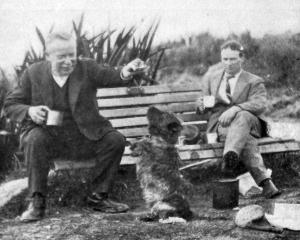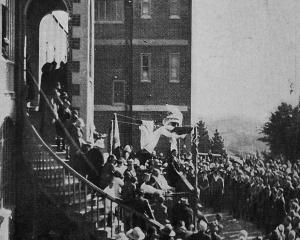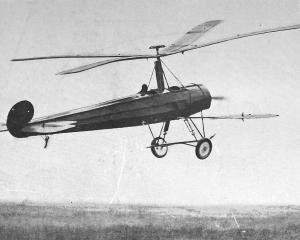The Aurora is at present in the small dock at Port Chalmers, and is being prepared to proceed as soon as possible to attempt the relief of the men on Elephant Island, and, as soon as the summer is sufficiently advanced to permit of it, to proceed through the ice to the Antarctic to rescue the men left there. The vessel, which suffered badly in the south, is in need of very extensive attention, and this she is receiving, the expense being borne half by the British Government, and the other half by the Commonwealth and New Zealand Governments on a population basis, New Zealand's share thus amounting to about one-eighth of the whole.
What the amount will be cannot yet be told. Everything necessary is being done, with the result that the Aurora will be as good a ship as when built, or, as Mr John Mill said yesterday, even better. Nearly 100 men are engaged on the work, the object being to get her ready for sea at the earliest moment. If more men could be got a month might see her away, but the present prospects are that about six weeks will be necessary. Dr McNab displayed the greatest interest in the vessel, and saw all that was to be seen, Captain Stenhouse taking him all over the ship and giving some excellent descriptions of what she had come through.
Particular interest was displayed by the Minister in the jury rudder. Messrs J. J. Chines, of Christchurch, and Mr John Mill, of Port Chalmers - the Committee of Management appointed in New Zealand - are personally giving the greatest attention to the boat. Captain Stenhouse has undertaken to return to the south, and it is not anticipated that there will be any difficulty about a crew, most of the men being willing to return, the more so as they have received the money due to them for their previous service, and have a certain prospect for the future. The boat will be provisioned for 18 months, though there is not the slightest reason to suppose that she will not get back long before the ice begins again to bind. Captain Stenhouse is most optimistic as to the outcome of the relief voyage.
Those who have no relatives fighting at the front have, nevertheless, some idea of the apprehensive tightening of the heart strings which besets the fathers, mothers, wives, and sweethearts of "our boys'' when they see a uniformed telegraph boy enter the gates of their homes. There appears, however, to be a formal red-tape procedure which must accentuate such feelings. Yesterday the relatives of a Dunedin soldier, who is lying in an English hospital "dangerously ill'', received no fewer than three telegrams, notifying the fact - one from the Prime Minister, another from the Minister of Defence, and another from the Minister of Finance.
The receipt of the first telegram was bad enough news; but when the second telegram came an hour or two later, a deadly fear oppressed the mother and the rest of the family that the worst had happened. At an interval of another hour or so, the household was again quite upset by the receipt of the third notification. The relatives of the soldier referred to have no doubt been thoroughly assured that he is really "dangerously ill'', but there does not appear any good reason why their feelings should have been harrowed in such a manner. - ODT, 19.7.1916.











